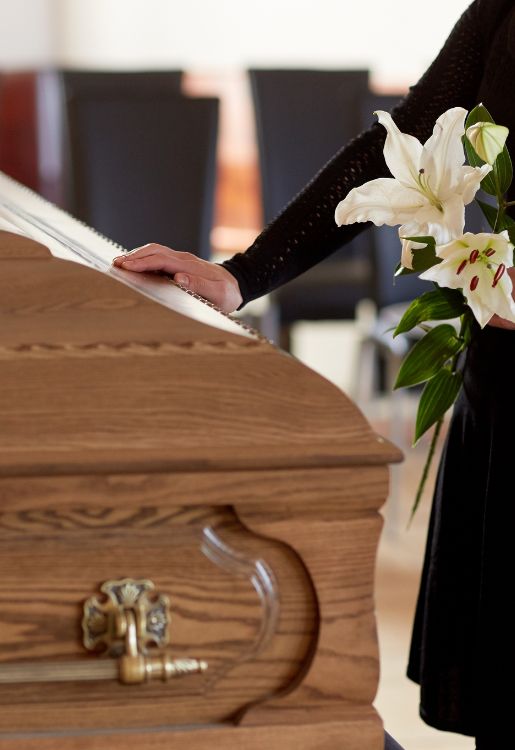The loss of a family member due to another party’s negligent actions can leave those left behind with significant emotional and financial challenges. California law does allow surviving family members to pursue legal action when a death is caused by negligence or misconduct. These claims are brought under the state’s wrongful death statutes and can provide monetary recovery for funeral expenses, lost financial support, and emotional suffering.
Wrongful death cases can arise from many types of incidents, including car accidents, workplace incidents, defective products, and medical errors. The facts surrounding each situation determine who may be held accountable and what legal remedies may be available. Lerner, Moore, Silva, Cunningham & Rubel (LMSCR) builds compelling wrongful death cases that meet the legal standards required under California law.
Who Can File a Wrongful Death Lawsuit in Ontario, California?
In these cases, the law prioritizes immediate family members such as spouses, domestic partners, and children. If none of these individuals are available, other relatives who would be entitled to the deceased person’s estate under California intestacy laws may be permitted to file. These include parents or siblings, depending on the circumstances.
It is important to note that only one wrongful death lawsuit may be filed in connection with a single decedent. Eligible parties must either file jointly or allow one person to act on behalf of all qualified heirs. Legal disputes can arise over who may participate in a claim, especially when extended family or multiple potential claimants are involved.
What Compensation May Be Recovered in a Wrongful Death Case?
Wrongful death claims may allow surviving family members to recover several categories of damages. These include economic damages, such as funeral and burial costs, loss of the decedent’s income, and the financial value of household services they would have provided. Non-economic damages may also be available, such as compensation for the loss of companionship, emotional support, and affection.
In certain cases, punitive damages may be available if the conduct that caused the death was particularly egregious. However, these damages are typically only pursued in conjunction with a survival action, which is separate from a wrongful death lawsuit and brought on behalf of the decedent’s estate for claims the deceased person could have brought if they had survived.
How Long Do I Have to File a Wrongful Death Claim in Ontario, California?
California’s statute of limitations for wrongful death claims is generally two years from the date of death. If a lawsuit is not filed within this timeframe, the court will likely dismiss the claim. There are limited exceptions to this rule, such as when a government entity is involved or when the cause of death was not immediately apparent.
Because time limits vary based on the facts of each case, we advise contacting our Ontario wrongful death lawyers as soon as possible following the incident. We can explain the applicable deadlines and procedural requirements.
How Is Liability Established in a Wrongful Death Case?
To prevail in a wrongful death lawsuit, the plaintiff must show that the defendant’s negligent or intentional conduct caused the death. This typically requires proving that the defendant owed the deceased person a duty of care, breached that duty, and caused the fatal outcome as a direct result of that breach.
Evidence often includes police reports, medical records, witness testimony, and, in some cases, professional opinions. The burden is on the plaintiff to demonstrate that the death would not have occurred but for the actions or inaction of the defendant. Because each incident involves its own set of facts, the legal strategy used to establish fault may vary.
What Is the Difference Between a Wrongful Death Claim and a Survival Action?
A wrongful death lawsuit compensates family members for their own losses related to the death. A survival action, on the other hand, allows the deceased person’s estate to recover damages the person would have been entitled to had they survived. These may include medical expenses incurred before death and pain and suffering if the decedent was conscious prior to passing.
Both types of claims may be brought together, but they serve distinct legal functions. The personal representative of the estate files a survival action, whereas wrongful death claims are filed by surviving relatives. The damages awarded in a survival action are paid to the estate and distributed according to the will or state intestacy laws.
Can a Wrongful Death Case Go to Trial?
Yes, our Ontario wrongful death lawyers take cases to trial when settlements cannot be reached. However, most of these cases are resolved through negotiation. If a case does proceed to court, the judge or jury will hear evidence from both sides and determine whether the defendant is liable and, if so, what damages are appropriate.
Trial preparation involves the collection and analysis of evidence, witness interviews, depositions, and legal motions. It also requires careful presentation of the losses suffered by surviving family members. While trials can extend the legal process, they may be necessary when parties cannot agree on liability or compensation.
Is There a Difference Between Civil and Criminal Proceedings After a Death?
Yes, wrongful death lawsuits are civil actions, whereas criminal charges for causing a death are brought by the government. For example, if a person causes a fatal car crash while under the influence of alcohol, the state may file criminal charges for manslaughter or vehicular homicide.
Regardless of whether criminal charges are filed or a conviction is obtained, surviving relatives may still pursue a civil wrongful death claim. The standard of proof is lower in civil cases than in criminal trials, meaning a defendant may be found liable in civil court even if acquitted in criminal proceedings.
Why Is Legal Representation Beneficial in a Wrongful Death Case?
Wrongful death claims involve multiple legal considerations, including determining eligibility, identifying liable parties, calculating damages, and filing within the appropriate timeframe. The process can be time-intensive and emotionally draining for those who are grieving.
Working with our Ontario wrongful death lawyers allows you to focus on your personal well-being while our legal team manages procedural and evidentiary matters. We analyze the unique circumstances of each case and apply California’s legal standards to support well-developed claims. From initial consultation through potential trial proceedings, we guide clients through each stage of the legal process with precision and care.
Our Compassionate Ontario Wrongful Death Lawyers at LMSCR Offer Free Consultations
Losing a loved one under preventable circumstances is one of life’s most painful experiences. While no legal action can reverse the past, our Ontario wrongful death lawyers at LMSCR may offer a path forward by holding the responsible parties accountable. To learn more, call 909-889-1131 or complete our online form to schedule a free consultation. Located in Ontario and Victorville, California, we serve clients in San Bernardino County, Ontario, Victorville, Hesperia, Apple Valley, Fontana, Rancho Cucamonga, Colton, and Riverside County.


Disclaimer | Privacy Policy | SMS Terms & Conditions
Making a false or fraudulent workers’ compensation claim is a felony subject to up to five years in prison or a fine of up to $50,000 or double the value of the fraud, whichever is greater, or by both imprisonment and fine. The information contained on this website does not guarantee, warranty, or predict the outcome of your case.








